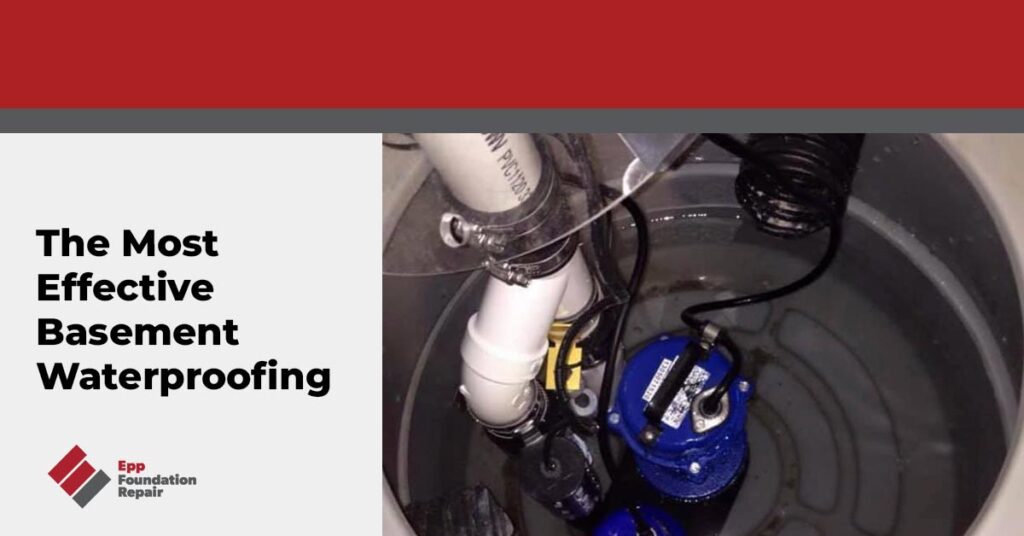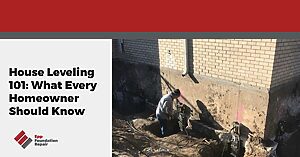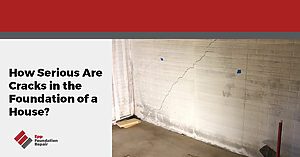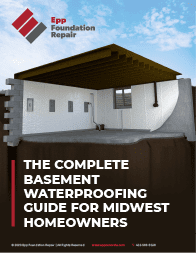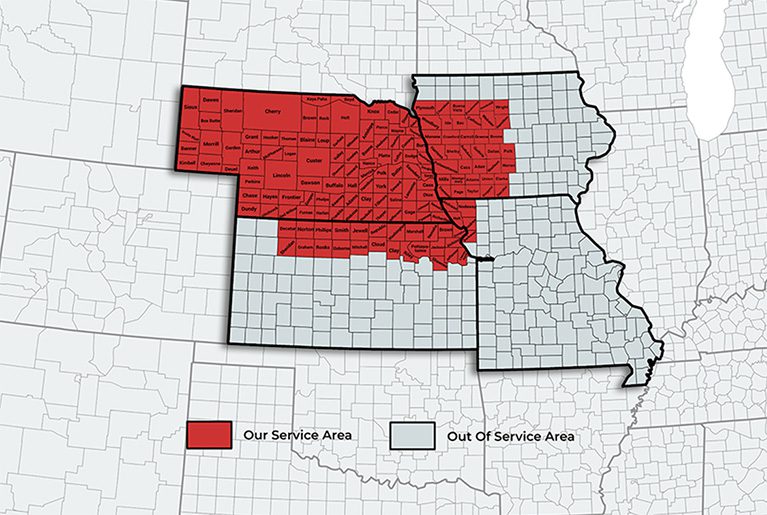Are you looking for a basement waterproofing method that will make your basement dry enough to live in? If so, keep reading because that’s what we’re going to talk about in this article. You’ll learn why basements get wet, why you want a dry basement, the absolute best way to achieve a dry basement, and more.
Why Do Basements Get Wet?
The main reason basements get wet is poor drainage around the foundation. This leads to excess soil moisture, causing hydrostatic pressure to build up. Hydrostatic pressure is powerful enough to push water through foundation wall cracks you didn’t even know were there. Hydrostatic pressure can even cause a foundation wall to bow inward and crack. For more information, see, Is Hydrostatic Pressure The Reason You Have a Wet Basement?
But how does the excess moisture get into the soil?
Various things can lead to the build-up of moisture in the soil, and we’re going to talk about those when we discuss other ways to keep water out of your basement in addition to basement waterproofing. You can think of them as additional lines of defense. However, before we talk about that, let’s go over why you want a dry basement.
Why You Want A Dry Basement
You want a dry basement because you can’t do much with a wet basement beyond using it as a laundry room. However, there’s another, more important reason you should make sure your home’s basement is dry: The stack effect.
What is the stack effect?
The stack effect happens when cooler air enters the basement and pushes the warmer air upward into your home’s living area. This is a problem because if the air in your damp basement is full of mold, the air inside your living area will be as well. This is unhealthy and could trigger allergies and respiratory problems for anyone living in the house. A clean, dry, mold-free basement eliminates this problem. Of course, a dry, mold-free basement can also be used as a living space or an area to store valuables.
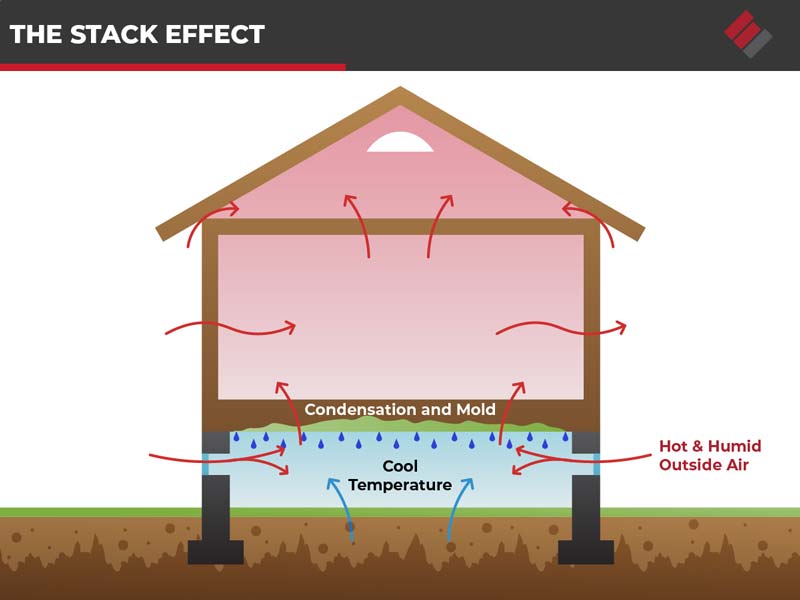
The Most Effective Basement Waterproofing Method
The most effective basement waterproofing method is a drain tile system. A drain tile system is a gold standard for basement waterproofing because it solves the root problem: poor drainage in the soil around the foundation. A drain tile system prevents excess moisture from building up in the ground, thereby eliminating hydrostatic pressure.
There are two types of drain tile systems, interior, and exterior. Here’s how they work:
Exterior drain tile system
An exterior drain tile system is installed around the outside perimeter of the foundation at the footing level. The installation process is generally as follows:
- The soil around the perimeter of the foundation is excavated down to the level of the footing, and a sump pit is dug.
- A shallow trench is created around the foundation and then lined with gravel
- A perforated drainage pipe is placed into the trench and then covered with more gravel.
- The excavated soil is put back along with any vegetation that was removed.
Now, any excess moisture in the soil will flow into the perforated drainage pipe and be directed toward the sump pit. When the sump pit fills with water, a sump pump will turn on automatically and expel the water away from the foundation.
Interior drain tile system
An interior drain tile system is installed around the inside perimeter of a basement or crawl space. The basic installation process in a basement goes as follows:
- The basement’s concrete floor is broken up using a jackhammer to create a shallow trench around the inside perimeter of the basement. A sump pit is also dug.
- The trench is lined with gravel, and a perforated drainage pipe is placed into the trench and covered with more gravel.
- If the basement is going to be finished, the cement floor will be replaced. If the basement isn’t going to be finished, some homeowners opt to leave the trench open.
Any excess water in the soil flows into the drainage pipe and toward the sump pit. Once the sump pit fills with water, a sump pump turns on, automatically expelling the water away from the foundation.
Other Ways To Keep Water Out Of Your Basement
While a drain tile system – either exterior or interior – is the most effective way to waterproof a basement, there are some other things you can do to keep water out of your basement. Think of them as an additional line of defense. These include:
- Regrade the yard around the foundation, if necessary – The yard around your home should slope away from the foundation. You don’t want water in the soil to drain toward and soak into the ground around the foundation. A landscaper can help you with this. It might also make an excellent DIY project.
- Clean your gutters regularly – Gutters clogged with dead leaves and other debris will cause water to spill over the side of the house and soak the soil around the foundation.
- Make sure your downspouts are long enough – Downspouts that are too short will release runoff too close to the foundation. Extensions are inexpensive, easy to install, and will carry water away from the foundation before releasing it.
- Don’t plant shrubs, flowers, etc., next to the house – While flowers and shrubs might look attractive next to the house, when you water them, you’ll be adding water to the soil around the foundation. This is what you’re trying to avoid.
- Ensure there’s good drainage in the window wells – Poor drainage in window wells can cause water to fill the wells and, from there, seep into the basement.
If you’re interested in basement waterproofing for your home in Lincoln, Omaha, Grand Island, Kearney, Nebraska, Missouri, Iowa and parts of Northeastern Kansas, contact us today and schedule an evaluation followed by a waterproofing estimate.

